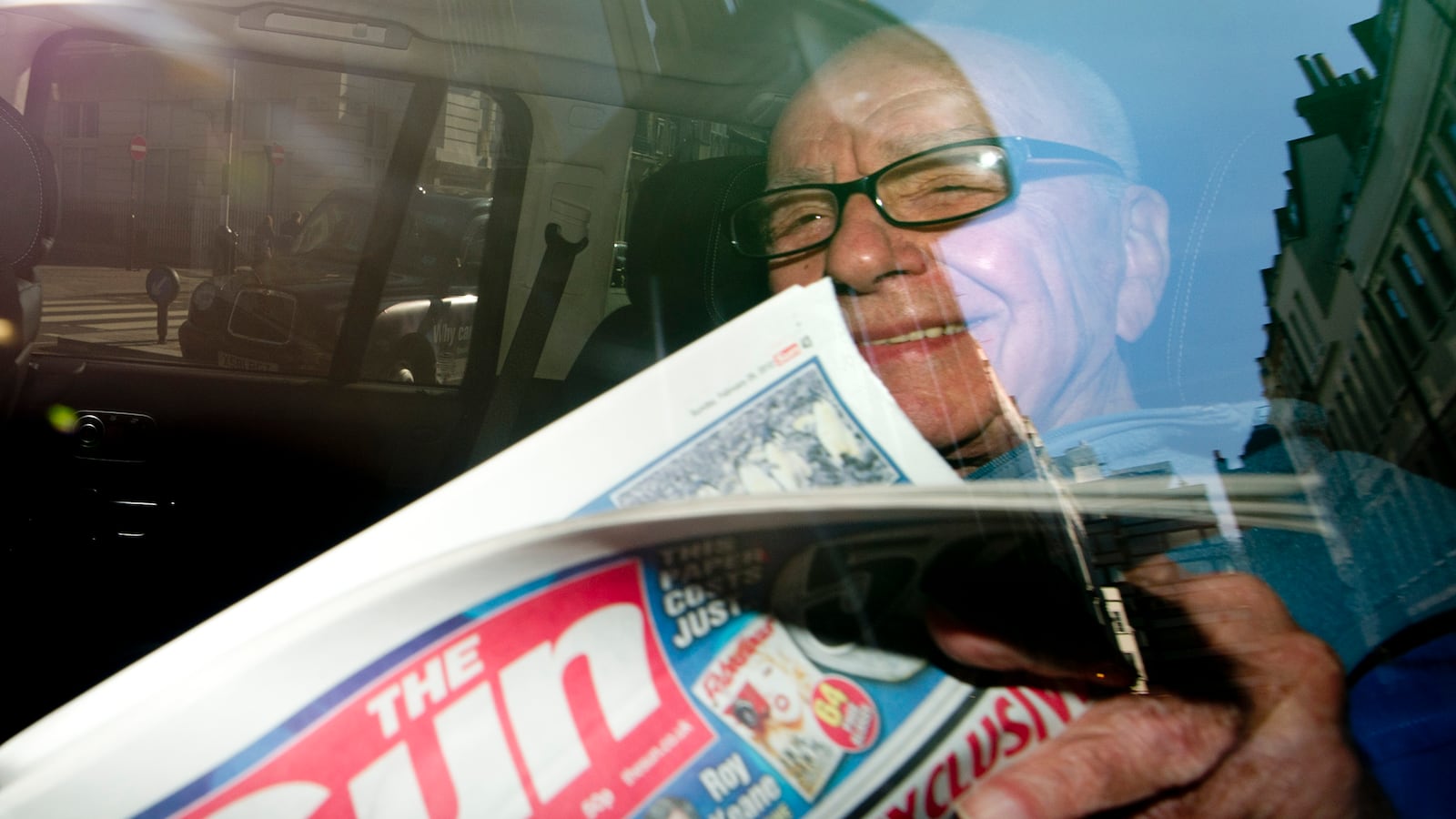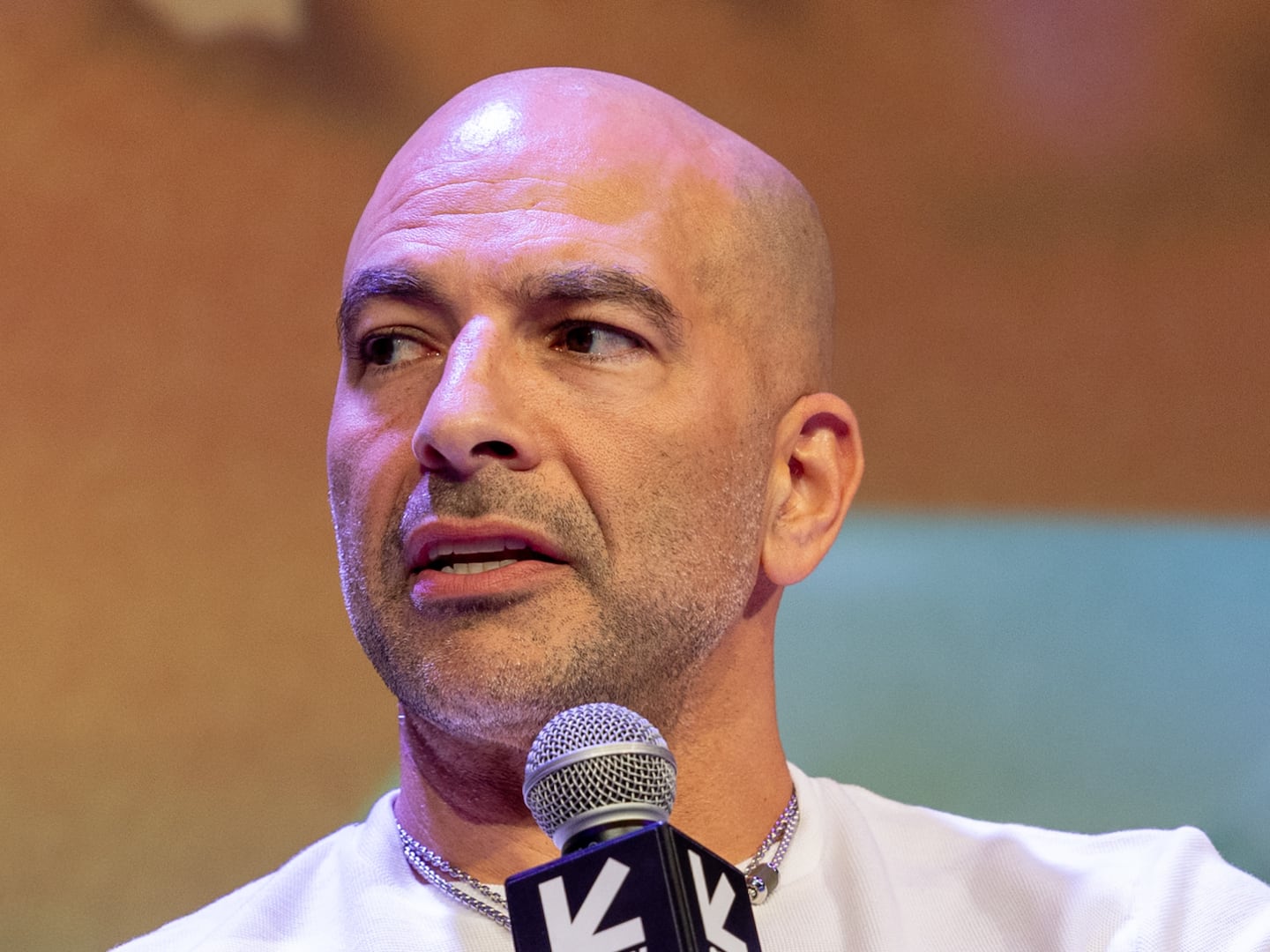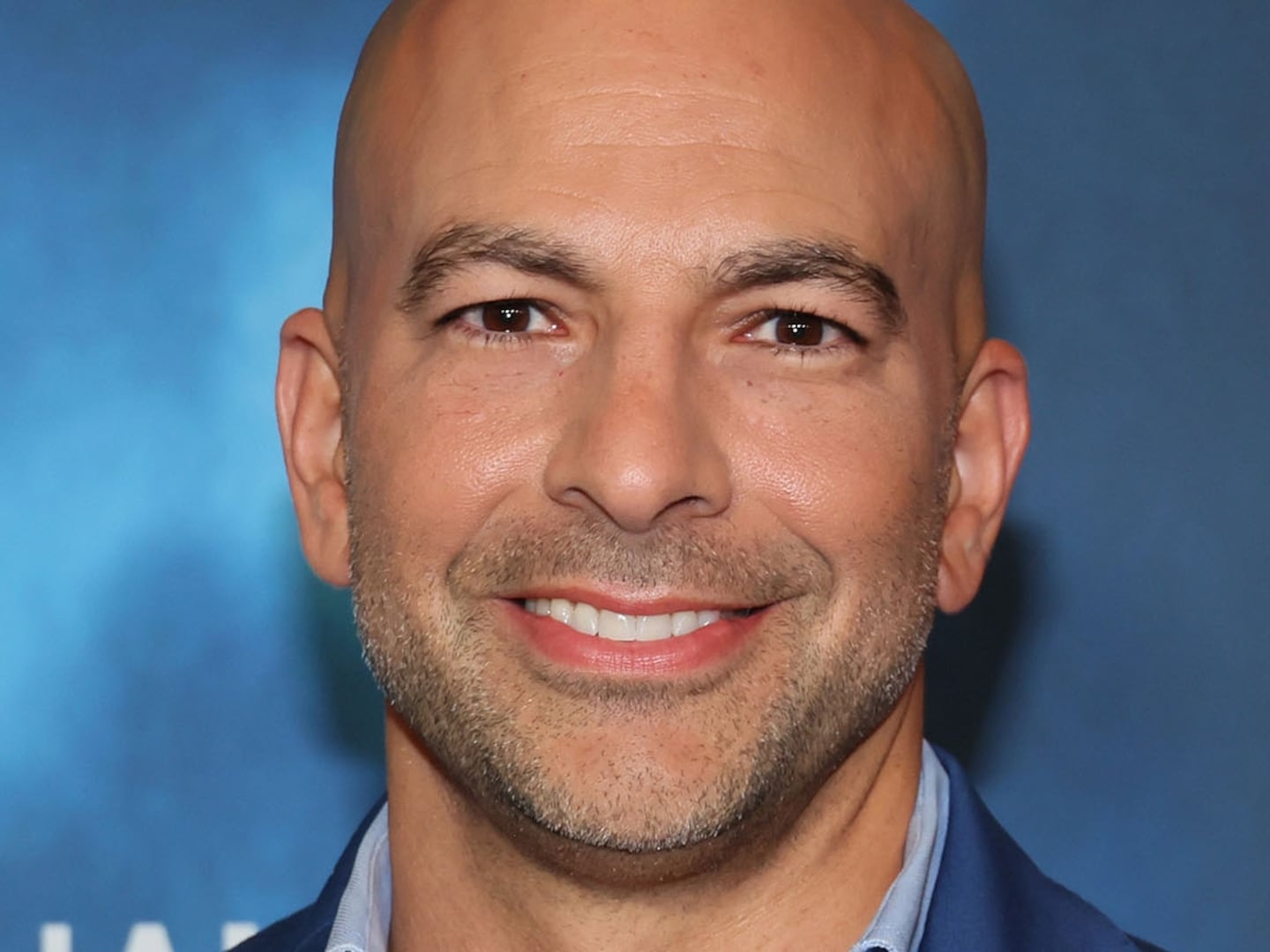“What Rupert Murdoch has done is unprecedented in the free world,” says the veteran journalist Nick Cohen, author of a recent award-winning book about censorship, You Can’t Read This Book. “Managers have been tasked to go over every expense claim and emails for signs of wrongdoing,” he told The Daily Beast. In the process, Murdoch has “basically given up his journalists and their sources.”

During the height of the phone-hacking crisis that hit Murdoch’s London subsidiary in 2011, parent company News Corp. faced an even greater threat—an investigation in by the U.S. Department of Justice into alleged breaches of the Foreign Corrupt Practices Act, which bans payments to foreign officials. To reduce the potential hefty corporate fines and indictments of senior executives in New York, Murdoch created a beefed-up Management and Standards Committee (MSC), with access to a recovered database of more than 300 million emails from its London newspapers and a remit to cooperate with the police.
Since the phone-hacking scandal that shuttered the News of the World broke, there have been more than 100 related arrests. Fifty-five of these have been of journalists, and the majority not for suspicion of phone hacking, as in the six new arrests Wednesday, but on suspicion of corrupt payments to public officials, most of it on evidence provided by the MSC.
“Seriously,” Cohen points out, “more journalists have been arrested in Britain this year than in Iran.” There have been various reports of suicide attempts among those arrested, with young families caught up in dawn raids, houses searched, phones and computers confiscated. Two young teenage daughters of a senior executive were reportedly ordered to leave their bedrooms during one dawn raid and told not talk to each other while officers rifled through their underwear drawers.
While Rebekah Brooks, who faces trial this September, left News International with a severance and legal package worth an estimated $10 million, many of the journalists awaiting charges have lost their jobs, with no legal aid from their former employers and with little prospect of working while still under a cloud. (News International is paying the legal costs of some of those arrested, mainly from The Sun.)
Neil Wallis, a former deputy of the News of the World and The Sun, was first arrested in July 2011. “It is almost 21 months since I was arrested, and I am still waiting to know if I will be charged,” he told The Daily Beast. “I have been warned that after charge it could be another year before a trial began.” Wallis lost his senior role at a PR company as a result of his arrest and has not found employment since. News International is not covering his legal fees.
Justice delayed is justice denied, not only for those awaiting potential trial but also for their alleged victims. Normally a maximum of six months elapses between an arrest and charges being laid in the British system, but many of those caught up in the phone-hacking and bribery scandal are approaching two years on bail.
To Mark Lewis, the lawyer who did more than most to bring the plight of phone-hacking victims to public attention, the inordinate length of the police investigations should be blamed on News International, which for five years maintained that just a single rogue reporter was involved. “Just think,” he tweeted recently: “the delay could have been much shorter without a cover-up in 2006.”
Not only is a chill descending on Fleet Street, but the fundamental principle of protecting sources is also in danger of being undermined. “It’s extraordinary,” says David Banks, a journalist who also trains other journalists in media law. “Of course, as soon as you make payments for stories, you’re into murky territory, but there seems to be a disturbing development that officials are being arrested for even talking to journalists.”
The police’s investigation is a fiendishly complicated one, given the pervasive nature of the alleged crimes. Much of the delay stems from Scotland Yard trying to “swallow the elephant whole,” said a senior police officer. “With all of the emails, computers, and mobile phones involved it is a mammoth task, and with the resources available, it is almost impossible.”
Police sources also acknowledge there is something of a “catching up for lost time.” Ten years ago Brooks told a parliamentary select committee that she had paid police for stories, yet she continued to wine and dine senior police officers. The relationship was seen as so close that, during the height of the hacking scandal, Britain’s most senior police officer, Commissioner Sir Paul Stephenson, was forced to resign.
But now there’s a danger the police are going overboard and, according to a senior officer, “criminalizing a whole institution” as they tackle abuses in the press. As David Banks points out, Fleet Street historically evolved around the Inns of Court in London, and the symbiotic relationship between journalism, the courts, and the police became “an organic part of our democracy” over the centuries.
At the moment, the relationship between the press and the police is at an all-time low. Journalists at The Guardian who for years pursued a solitary and often derided campaign to expose the bad practices of News International are just as concerned as their tabloid counterparts. Top investigative journalist Paul Lewis and commentator Roy Greenslade complained at conference Monday of the “chilling effect” of the arrests and prolonged bail times and the inability of getting any information from the police beyond the “sanitized” accounts of their PR departments. Police sources say, however, that they are investigating their own just as vigorously, with officers just as likely to suffer the dreaded “6 o’clock knock” as any journalists.
Exposed by Murdoch to protect his U.S. interests, pursued by police eager to make up for the excesses of the past, British journalists are caught in the middle or, as Nick Cohen puts it, “trapped between corporate and state power.”






